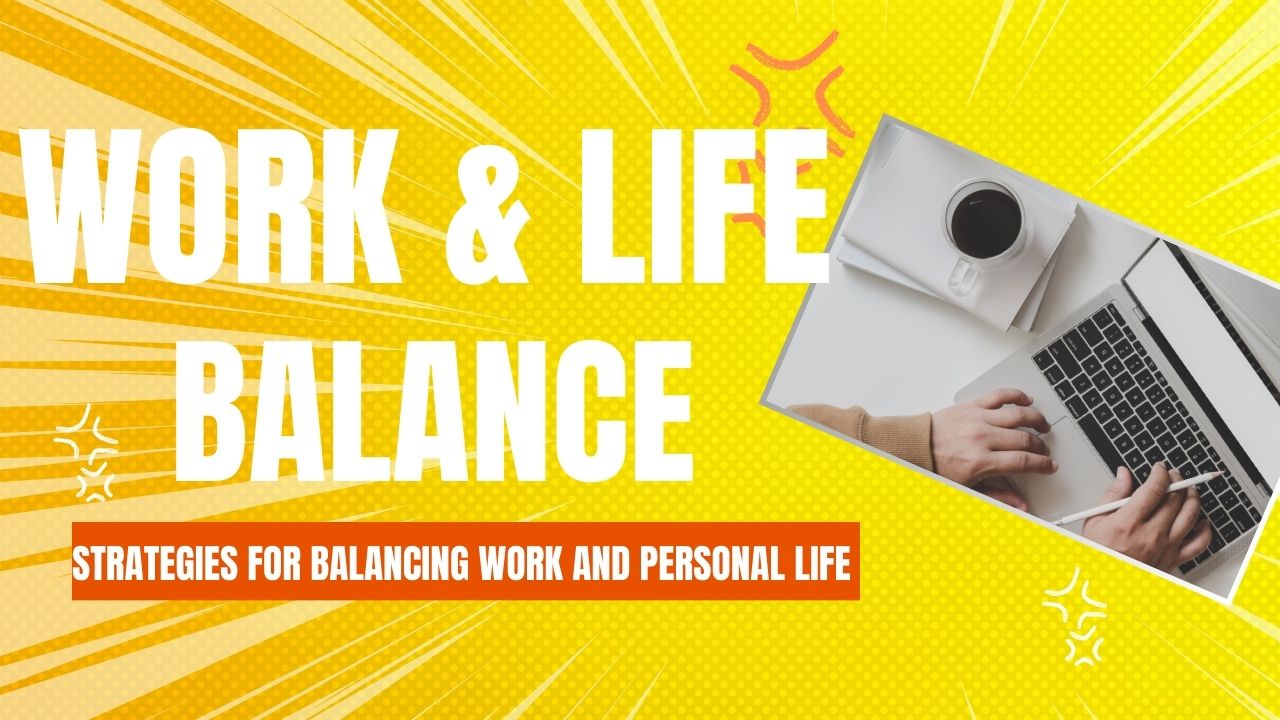
Many individuals find themselves struggling to juggle their professional responsibilities while also maintaining their overall well-being. However, achieving this delicate balance is not only possible but also crucial for long-term success and happiness.
The Significance of Work and Personal Life Balance
When work dominates our lives, neglecting personal needs and relationships, it can lead to stress, burnout, and deteriorating mental and physical health.
Furthermore, a well-balanced life allows individuals to excel in both their personal and professional pursuits. It enhances productivity, creativity, and job satisfaction. Consequently, we become more efficient and effective, leading to better performance and increased opportunities for growth and success.
Strategies for Balancing Work and Personal Life
1. Set Clear Boundaries
Establishing boundaries between work and personal life is crucial for maintaining balance. Establish definite working hours and pledge to adhere to them. Steer clear of intertwining work-related duties with your personal time, and likewise, avoid merging personal tasks with work hours. By setting clear boundaries, you create dedicated time for both work and personal activities, reducing the chances of overlap and ensuring that each aspect receives adequate attention.
2. Prioritize Self-Care
Engage in regular exercise, practice mindfulness or meditation, and nurture healthy relationships. Taking care of yourself will recharge your energy, improve focus, and enhance your ability to handle work-related challenges effectively.
3. Delegate and Outsource
Delegate tasks at work and at home to reliable individuals who can share the load. Additionally, consider outsourcing certain responsibilities that are not essential for your personal attention. By delegating and outsourcing, you free up time and mental space to focus on the most critical aspects of your work and personal life.
4. Practice Effective Time Management
Efficiently managing one’s time forms the foundation of achieving a harmonious work-life balance. Prioritize your tasks and allocate specific time slots to each. Use productivity tools and techniques to streamline your workflow and eliminate unnecessary distractions. By managing your time efficiently, you can accomplish more in less time, leaving room for leisure and personal activities.
5. Foster Supportive Relationships
Building a strong support system is vital for navigating the complexities of work-life balance. Cultivate relationships with colleagues, friends, and family members who understand and respect your need for balance. Surrounding yourself with supportive individuals will provide encouragement, advice, and assistance when you face challenges or feel overwhelmed.

Integrating Work and Life for Long-Term Success
Rather than viewing work and personal life as separate entities, aim to integrate them harmoniously. Find opportunities to align your personal interests and values with your professional pursuits. Seek meaningful projects or roles that bring fulfillment and allow you to contribute to society while nurturing your well-being.
Harnessing Technology to Your Advantage
Leverage technology to your advantage by utilizing productivity apps, communication tools, and automation systems. However, be mindful of setting boundaries and avoiding excessive screen time that may encroach upon your personal life.
Finding Fulfillment in Personal and Professional Pursuits
True work-life balance lies in finding fulfillment both in personal and professional endeavors. Continuously evaluate and reassess your goals to ensure they align with your values.
Overcoming Challenges and Obstacles
Balancing work and personal life is not without challenges. Identify common obstacles such as excessive workload, lack of support, or unrealistic expectations. Develop strategies to overcome these challenges, such as effective communication with supervisors or seeking work-life balance initiatives within your organization.
Cultivating Supportive Relationships
Building and maintaining supportive relationships is vital for work-life balance. Surround yourself with individuals who understand the importance of your well-being and encourage your personal growth. Foster open communication with your family, friends, and colleagues to create a support network that can help you navigate challenges.
Embracing the Duality
Rather than viewing work and personal life as opposing forces, embrace the idea that they can coexist harmoniously. Strive to integrate your work and personal life in a way that enhances both. For example, you can incorporate personal interests into your work or find ways to apply skills developed at work to your personal pursuits. By embracing the duality, you can create synergy and fulfillment in all aspects of your life.
You can also read : Best Practices for Reporting Trade Payables
Attaining equilibrium between work and personal life is a continual expedition demanding deliberate dedication and placing priorities accordingly. By setting clear boundaries, prioritizing self-care, practicing effective time management, fostering supportive relationships, and embracing the duality of success and well-being, you can create a fulfilling and harmonious life. Remember, true success encompasses not only professional accomplishments but also personal happiness and fulfillment. Strive for balance, and you will unlock your true potential in all areas of your life.

